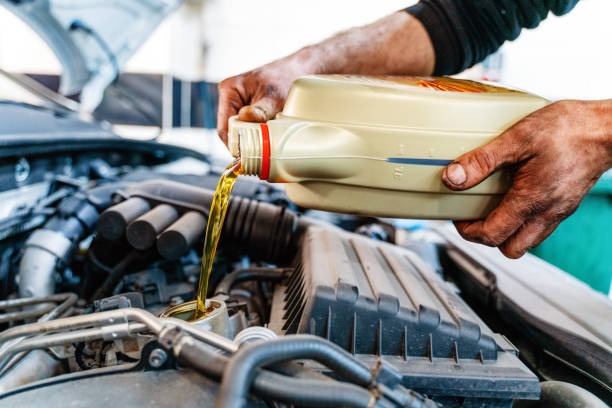
Maintaining your vehicle properly is essential for long-term performance and safety. Among the various maintenance tasks, one of the most critical is scheduling regular oil changes. For car owners looking for an expert-level guide, understanding when and why to schedule an oil change is key—especially if you're considering an Oil change in Lanham MD.
An oil change not only keeps your engine running smoothly but also helps extend the overall life of your vehicle. Whether you're a commuter or operate a fleet, knowing the right frequency and indicators for oil changes can save you from costly repairs and breakdowns. This comprehensive guide will walk you through everything you need to know.

Engine oil serves as a lubricant for the various moving parts inside your vehicle's engine. It reduces friction, disperses heat, and prevents wear and tear. Without timely oil changes, the oil can break down and become ineffective, leading to engine damage.
A trusted truck repair shop in Lanham MD plays a vital role in vehicle maintenance, especially for heavy-duty trucks or commercial vehicles. When you visit a professional facility, technicians inspect more than just the oil—they assess other potential issues such as fluid levels, leaks, and overall engine health.
Every vehicle comes with a manufacturer-recommended oil change interval. Typically, this ranges from 3,000 to 7,500 miles, depending on the vehicle type, oil used, and driving conditions. If you're unsure, consulting your vehicle manual or an expert can give you accurate guidance tailored to your situation.
If you regularly drive in harsh conditions—such as stop-and-go traffic, dusty environments, or extreme temperatures—you might need to schedule more frequent oil changes. Residents considering an Oil change in Lanham MD often face seasonal fluctuations, which can also impact engine performance.
Besides relying on mileage, there are warning signs your vehicle may exhibit when it's time for an oil change. These include a check engine light, noisy engine performance, dark or gritty oil, and a strong oil smell inside the cabin. Ignoring these signs can lead to bigger issues down the road.
A timely oil change leads to better engine lubrication, improved gas mileage, and a longer engine lifespan. Moreover, it ensures cleaner emissions and reduces the risk of costly repairs. Consistent oil maintenance is a proactive way to avoid major engine repair.
An oil change is just one aspect of comprehensive vehicle care. During regular servicing, technicians also check the need for Steering repair, inspect Suspension repair issues, and even assess your vehicle's electrical and brake systems. This holistic approach is crucial for optimal performance.
Advanced vehicles now come with diagnostic systems that alert you when something is wrong. These systems are particularly useful in flagging engine oil issues or detecting related problems that could compromise safety. Getting a Vehicle engine diagnostic during your oil change can uncover hidden issues early on.
If you experience unusual engine behavior even after a recent oil change, it might indicate a deeper issue. At that point, you may need to consult a professional for Engine Repair. Addressing these concerns early can prevent more expensive problems in the future.
In most Truck repair shop environments, oil changes are bundled with other helpful services like tire rotation, Brake inspections, and even Roadside Assistance Services. This bundled approach ensures your vehicle receives comprehensive care in a single visit, maximizing efficiency and safety.
In conclusion, getting a timely reliable Oil change in Lanham MD is an essential part of your vehicle's maintenance routine. Ignoring oil changes can result in severe engine damage and costly repairs. By working with a trusted Truck repair shop and staying attentive to your driving conditions, warning signs, and mileage, you can ensure your vehicle remains reliable and efficient.
Remember, other services like Suspension repair, Steering repair, and Vehicle engine diagnostics go hand-in-hand with routine oil changes. Don't wait for problems to arise. Keep your vehicle healthy and your journeys safe by scheduling regular oil changes with trusted professionals.